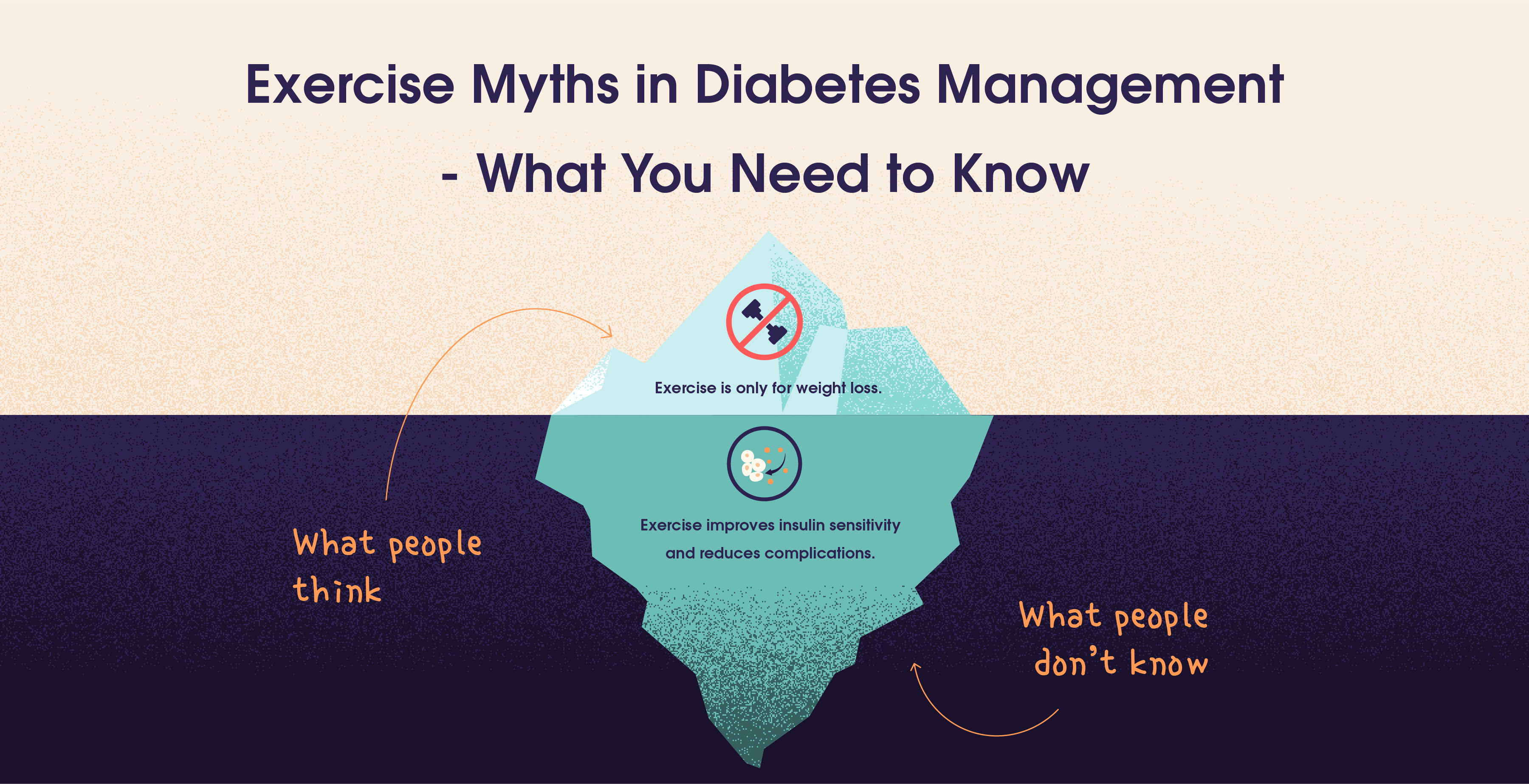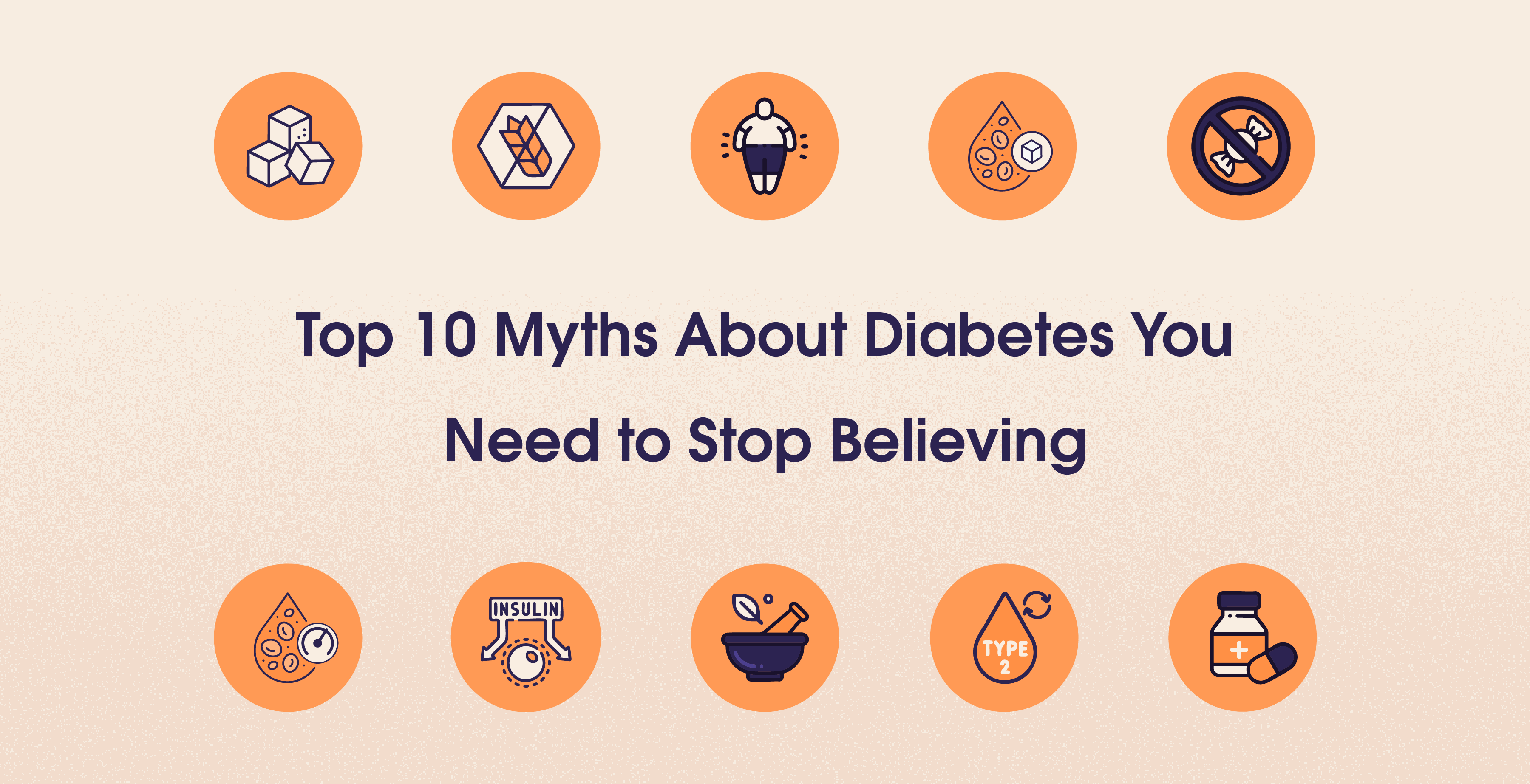Understanding Gestational Diabetes
Sep 25, 2024
Aparna Hurtis



Table Of Contents
Introduction
During pregnancy - a mother goes through a heap of conditions that aren’t quite talked about and one of the most uncommonly talked about topics is Gestational Diabetes - it is a condition that affects 2-10% of pregnancies in the US!
Highlights -
Gestational diabetes - what you need to know
What puts you at risk for Gestational diabetes diagnosis
How it can impact your health and the health of the growing fetus
Prevention, Diagnosis, and Management of GDM
What is Gestational Diabetes?
Gestational Diabetes is when a pregnant woman, who has not been diagnosed with diabetes before, has increased levels of blood sugar. It is not an uncommon diagnosis as in the United States, 6 out of every 100 pregnant people develop gestational diabetes.
The scientific side of the diagnosis comes when during pregnancy your body being a hormone-producing machine, makes your cells not so great at letting insulin do its job ( Ahh! The hormones can be a pain! This leads to the body not utilizing the insulin properly increasing your blood sugar levels - and that is gestational diabetes for you in a gist.
Although most cases resolve after childbirth, during the pregnancy gestational diabetes can impact both the mother and the baby’s health. In this article let’s explore the various aspects of GD - including the risk factors, the symptoms, prevention and management, and maybe a little anecdote of how I got diagnosed with Gestational diabetes and how I got it under control with the help of my doctor.
What makes you prone to Gestational Diabetes?
Excess weight - Being on the heavier side before pregnancy can be a factor in you being more prone to having GD.
Family History - If Diabetes type 1 or type 2 runs in your family, there is a chance for you to be diagnosed with Gestational diabetes.
Polycystic Ovary Syndrome (PCOS) - Most of us with PCOS ( me included ) run the risk of insulin resistance in our day-to-day lives and it can be a contributing factor to GD. (I know what you are thinking - haven’t we been through enough with PCOS and now this!)
Physical inactivity - It all comes back to this and not being physically active is a major factor for most ailments and a contributing factor here too!
Race or Ethnicity - There is a higher risk with certain groups in the US like the Black, Hispanic, and Asian American populations.
What is the impact on the health of the Mother and the Baby?
In the case of the mother -
There is an increased risk of complications - Gestational Diabetes Mellitus (GDM) can lead to preeclampsia, c-section delivery, and other adverse outcomes.
Women with GDM have a higher risk of developing Type 2 diabetes later in life ( if not managed)
The effects on the baby -
Babies born to mothers with GDM may be larger than average ( I may know a thing or two about this as my little peanut was born at a whopping 8.9 pounds!)
Babies can have Neonatal Hypoglycemia. This is a condition where the newborn has low blood sugar levels.
The children of mothers with GDM run a risk for obesity and Type-2 diabetes in the long run.
Now that we have read about the risks and are worried about the after-effects of the GDM diagnosis, let’s talk about if you are on the route to planning a baby let’s also look at how we can prevent a GDM diagnosis, and if you are an expectant mother how you can get checked for GDM, and how it can be managed if you are diagnosed!
Prevention of GDM for expectant mothers -
Preconception Counseling -
It is important to start preconception counseling during puberty and have it continue throughout the reproductive years, a part of this is to have discussions on family planning with your doctor and get prescribed effective solutions to managing or achieving optimal glucose control for pregnancy. For reference - normal glucose levels are A1C < 6.5% which will help in reducing the risk of congenital anomalies, preeclampsia, macrosomia, and preterm birth.
Education -
Women and Adolescents need to be educated about GDM and the risks of the same. Effective preconception counseling can help in improving maternal and fetal outcomes. In the case of adolescents, the use of appropriate educational tools from the American Diabetes Association will be helpful.
Weight Management -
Weight Management plays a crucial factor in GDM as well and it is necessary to determine the ideal weight that needs to be achieved with the help of your doctor and achieve the same before conception.
We’ve talked about what we can do before conceiving to prevent and manage GDM, now let’s dive into how to test for GDM after conception.
Here are the common test methods adopted in the US -
Glucose Challenge Test -
This is usually done between 24 and 28 weeks of pregnancy
This test does not require you to fast overnight.
You are given a sweet liquid containing glucose, and after an hour your blood is drawn.
If you have a blood glucose level of 140 or higher you may need further testing and in case your blood glucose level is 200 or higher you may have type 2 diabetes and need to be checked for the same. (1)
Oral Glucose Tolerance Test (OGTT)
Also done between 24-28 weeks of pregnancy
This test requires one to fast for at least 8 hours and a max of 10 hours
Blood will be drawn after the fasting period and then you will have to drink a glucose concentrate liquid
Blood will be drawn every hour for 2 to 3 hours.
If you have high blood glucose levels at any two or more test times - it is can be an indication of GDM. (2)
Ways to manage GDM
Now that we know how to test for GDM, let’s look at ways to manage GDM -
The first and foremost thing that needs to be done is to make Lifestyle Modification -
Dietary changes - Focus on having balanced meals, and one must avoid excessive sugar and processed foods. ( I know it can be hard to stay away from those sugar cravings - you can have them but portion control is your friend in such situations if you are unable to beat the craving!)
Exercise - Regular physical activity can help maintain blood sugar levels - as you are an expectant mother a stroll after a meal or pre-natal yoga or small exercises can be your best friend but before you introduce an exercise routine consult with your doctor.
Along with Lifestyle changes depending on your blood sugar levels you might require the following Medical Interventions -
If the lifestyle changes aren’t working for your blood sugar levels then you may be prescribed medication or insulin therapy to help keep the blood sugar levels in check.
Another method to help you keep checks on your Blood glucose levels is continuous monitoring.
A story about my GDM diagnosis
From the time I can remember I have been the plump kid who had hormonal issues - and had a late diagnosis of PCOS at the age of 21 ( quite late! But better late than never I guess), it was a diagnosis that took a toll on my mental health and overall physical health as well as the doctors don’t tell us anything other than you will get fat or you will not have children or will have difficulty having children.
No one talks about insulin resistance and the chances of being diagnosed with pre-diabetes. Well for some luck I did find a doctor who told me about insulin resistance and how I am at a higher risk of diabetes due to my combination of PCOS and type 2 diabetes family history.
After years of ignorance and only deciding to take action on my health right around the time I decided to get married was when I started to change things - I managed to lose about 55 pounds with a good combination of exercise and balanced meals.
After marriage, I conceived which was a miracle, as I was told it would be difficult for me to have kids but things worked out I guess - the first trimester was a breeze ( No morning sickness!) but things took a turn during the second trimester when I was asked to take the OGTT test - and it turns out I had Gestational Diabetes!
It was a worrisome diagnosis and my doctor played a major role in scaring me about the side effects that the little one would have to go through and how I would have to have a c-section delivery as the baby would get too big to give birth to, which that lead to immediate lifestyle changes and continuous glucose monitoring - I was also put on medication to control my blood sugar levels but consistency with lifestyle changes and continuous monitoring helped in stopping the medication and in managing my blood sugar levels but the effects of the spike did translate with my little peanut being born at a whooping 8.9 lbs ( Yes! The nurses and doctors had the same reaction as you did - That’s a big baby!)
Once he was born he was taken to the NICU to monitor his blood sugar levels as the doctors were worried he would have Neonatal Hypoglycemia but thankfully he was cleared and we got to take home a healthy baby!
Gestational Diabetes does not have to be the end of the road, it can always be managed and reversed with the help of early detection, proper management, and help from your doctor can ensure a healthy and happy pregnancy!
References
Introduction
During pregnancy - a mother goes through a heap of conditions that aren’t quite talked about and one of the most uncommonly talked about topics is Gestational Diabetes - it is a condition that affects 2-10% of pregnancies in the US!
Highlights -
Gestational diabetes - what you need to know
What puts you at risk for Gestational diabetes diagnosis
How it can impact your health and the health of the growing fetus
Prevention, Diagnosis, and Management of GDM
What is Gestational Diabetes?
Gestational Diabetes is when a pregnant woman, who has not been diagnosed with diabetes before, has increased levels of blood sugar. It is not an uncommon diagnosis as in the United States, 6 out of every 100 pregnant people develop gestational diabetes.
The scientific side of the diagnosis comes when during pregnancy your body being a hormone-producing machine, makes your cells not so great at letting insulin do its job ( Ahh! The hormones can be a pain! This leads to the body not utilizing the insulin properly increasing your blood sugar levels - and that is gestational diabetes for you in a gist.
Although most cases resolve after childbirth, during the pregnancy gestational diabetes can impact both the mother and the baby’s health. In this article let’s explore the various aspects of GD - including the risk factors, the symptoms, prevention and management, and maybe a little anecdote of how I got diagnosed with Gestational diabetes and how I got it under control with the help of my doctor.
What makes you prone to Gestational Diabetes?
Excess weight - Being on the heavier side before pregnancy can be a factor in you being more prone to having GD.
Family History - If Diabetes type 1 or type 2 runs in your family, there is a chance for you to be diagnosed with Gestational diabetes.
Polycystic Ovary Syndrome (PCOS) - Most of us with PCOS ( me included ) run the risk of insulin resistance in our day-to-day lives and it can be a contributing factor to GD. (I know what you are thinking - haven’t we been through enough with PCOS and now this!)
Physical inactivity - It all comes back to this and not being physically active is a major factor for most ailments and a contributing factor here too!
Race or Ethnicity - There is a higher risk with certain groups in the US like the Black, Hispanic, and Asian American populations.
What is the impact on the health of the Mother and the Baby?
In the case of the mother -
There is an increased risk of complications - Gestational Diabetes Mellitus (GDM) can lead to preeclampsia, c-section delivery, and other adverse outcomes.
Women with GDM have a higher risk of developing Type 2 diabetes later in life ( if not managed)
The effects on the baby -
Babies born to mothers with GDM may be larger than average ( I may know a thing or two about this as my little peanut was born at a whopping 8.9 pounds!)
Babies can have Neonatal Hypoglycemia. This is a condition where the newborn has low blood sugar levels.
The children of mothers with GDM run a risk for obesity and Type-2 diabetes in the long run.
Now that we have read about the risks and are worried about the after-effects of the GDM diagnosis, let’s talk about if you are on the route to planning a baby let’s also look at how we can prevent a GDM diagnosis, and if you are an expectant mother how you can get checked for GDM, and how it can be managed if you are diagnosed!
Prevention of GDM for expectant mothers -
Preconception Counseling -
It is important to start preconception counseling during puberty and have it continue throughout the reproductive years, a part of this is to have discussions on family planning with your doctor and get prescribed effective solutions to managing or achieving optimal glucose control for pregnancy. For reference - normal glucose levels are A1C < 6.5% which will help in reducing the risk of congenital anomalies, preeclampsia, macrosomia, and preterm birth.
Education -
Women and Adolescents need to be educated about GDM and the risks of the same. Effective preconception counseling can help in improving maternal and fetal outcomes. In the case of adolescents, the use of appropriate educational tools from the American Diabetes Association will be helpful.
Weight Management -
Weight Management plays a crucial factor in GDM as well and it is necessary to determine the ideal weight that needs to be achieved with the help of your doctor and achieve the same before conception.
We’ve talked about what we can do before conceiving to prevent and manage GDM, now let’s dive into how to test for GDM after conception.
Here are the common test methods adopted in the US -
Glucose Challenge Test -
This is usually done between 24 and 28 weeks of pregnancy
This test does not require you to fast overnight.
You are given a sweet liquid containing glucose, and after an hour your blood is drawn.
If you have a blood glucose level of 140 or higher you may need further testing and in case your blood glucose level is 200 or higher you may have type 2 diabetes and need to be checked for the same. (1)
Oral Glucose Tolerance Test (OGTT)
Also done between 24-28 weeks of pregnancy
This test requires one to fast for at least 8 hours and a max of 10 hours
Blood will be drawn after the fasting period and then you will have to drink a glucose concentrate liquid
Blood will be drawn every hour for 2 to 3 hours.
If you have high blood glucose levels at any two or more test times - it is can be an indication of GDM. (2)
Ways to manage GDM
Now that we know how to test for GDM, let’s look at ways to manage GDM -
The first and foremost thing that needs to be done is to make Lifestyle Modification -
Dietary changes - Focus on having balanced meals, and one must avoid excessive sugar and processed foods. ( I know it can be hard to stay away from those sugar cravings - you can have them but portion control is your friend in such situations if you are unable to beat the craving!)
Exercise - Regular physical activity can help maintain blood sugar levels - as you are an expectant mother a stroll after a meal or pre-natal yoga or small exercises can be your best friend but before you introduce an exercise routine consult with your doctor.
Along with Lifestyle changes depending on your blood sugar levels you might require the following Medical Interventions -
If the lifestyle changes aren’t working for your blood sugar levels then you may be prescribed medication or insulin therapy to help keep the blood sugar levels in check.
Another method to help you keep checks on your Blood glucose levels is continuous monitoring.
A story about my GDM diagnosis
From the time I can remember I have been the plump kid who had hormonal issues - and had a late diagnosis of PCOS at the age of 21 ( quite late! But better late than never I guess), it was a diagnosis that took a toll on my mental health and overall physical health as well as the doctors don’t tell us anything other than you will get fat or you will not have children or will have difficulty having children.
No one talks about insulin resistance and the chances of being diagnosed with pre-diabetes. Well for some luck I did find a doctor who told me about insulin resistance and how I am at a higher risk of diabetes due to my combination of PCOS and type 2 diabetes family history.
After years of ignorance and only deciding to take action on my health right around the time I decided to get married was when I started to change things - I managed to lose about 55 pounds with a good combination of exercise and balanced meals.
After marriage, I conceived which was a miracle, as I was told it would be difficult for me to have kids but things worked out I guess - the first trimester was a breeze ( No morning sickness!) but things took a turn during the second trimester when I was asked to take the OGTT test - and it turns out I had Gestational Diabetes!
It was a worrisome diagnosis and my doctor played a major role in scaring me about the side effects that the little one would have to go through and how I would have to have a c-section delivery as the baby would get too big to give birth to, which that lead to immediate lifestyle changes and continuous glucose monitoring - I was also put on medication to control my blood sugar levels but consistency with lifestyle changes and continuous monitoring helped in stopping the medication and in managing my blood sugar levels but the effects of the spike did translate with my little peanut being born at a whooping 8.9 lbs ( Yes! The nurses and doctors had the same reaction as you did - That’s a big baby!)
Once he was born he was taken to the NICU to monitor his blood sugar levels as the doctors were worried he would have Neonatal Hypoglycemia but thankfully he was cleared and we got to take home a healthy baby!
Gestational Diabetes does not have to be the end of the road, it can always be managed and reversed with the help of early detection, proper management, and help from your doctor can ensure a healthy and happy pregnancy!
References
Table Of Contents
Table Of Contents
Table Of Contents
Read More


Apr 2, 2025
Sayfali Rawlani


Feb 17, 2025
Aparna Hurtis


Feb 10, 2025
Aparna Hurtis



Copyright © 2025 trst health. All right reserved.

